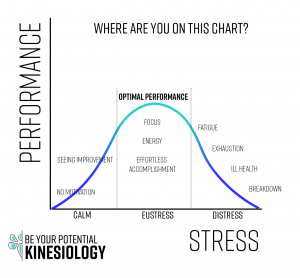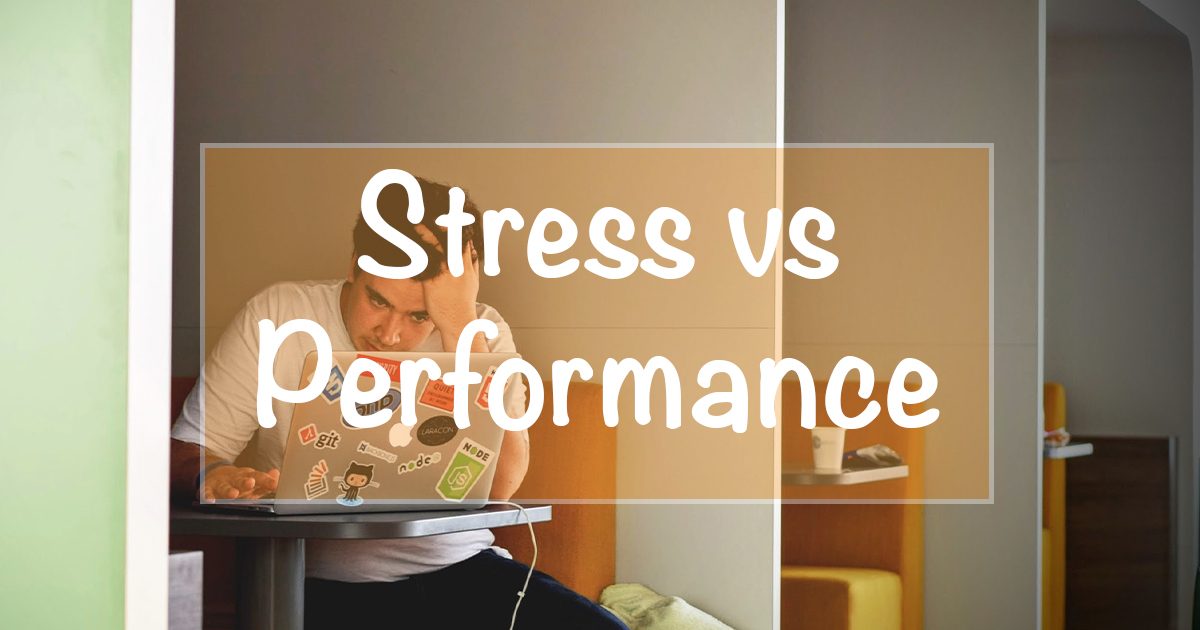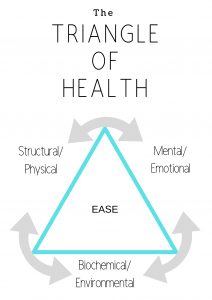Stress isn’t all bad!!
In psychology, stress is a reaction to a real or perceived threat. This functions to motivate us into action and to keep us alive and functioning. There are a number of physiological responses that take place in the body when this occurs. All of these responses are to stimulate the body and the mind to function at its peak.

When the stress is within our coping abilities we call this Eustress.
It is in this state that we feel motivated and focused to achieve our desired or required outcome.
It is when the Stress is overwhelming, out side of our coping abilities or long standing we call this distress.
Our body is not equipped to deal with stress for a long period of time. Neither is it equipped to deal with a large amount of stress. When we do, we begin to experience the detrimental effects of stress on our health and our performance.
Stress is more than just psychological.
In Kinesiology, stress is our body’s reaction to a stimulus. It could be a physical stimulus, a mental or emotional stimulus, something external , or maybe something that has entered our system (food or germs). All of these things change the balance of our system and our body is then activated to bring it back to homeostasis.
If our body has the tools it needs to function appropriately, it will be able to cope with these stimuli and bring the entire system back to homeostasis. Ultimately keeping us alive.
If the body does not have the tools it needs to function, or the stimulus is outside of its current coping abilities, it will not be able to correct the imbalance itself. With an ongoing imblance in our system, other aspects of our wellness are likely to be effected and eventually things like fatigue, exhaustion, illness and breakdown occur.
What can you do to reduce your stress loading?
- Eat Wholefoods: Why? your body needs not only glucose for energy, but, the right amount of nutrients (vitamins and minerals etc.) for your body to carry out its functions effectively. If eating a wide variety of wholefoods doesn’t improve your wellbeing, sometimes supplements may be needed.
- Drink plenty of filtered water: I’m sure I don’t need to tell you how important it is to drink water. We are so lucky to live in a country that delivers us clean water to our kitchens. Unfortunately, the process it goes through also leaves it full of potential stressors for our body. A good water filter that filters out all the nasties and remineralises the water, can help reduce stress on your system and improve your health. If you are wanting a good filter I can Suggest this one here
- Move regularly:This not only helps to relieve stress, it helps keep everything moving and flexible. It also helps to move our lymph. Our lymph is part of our system that eliminates our waste from around the body.
- Get plenty of Rest: Our body can’t repair if we aren’t in rest mode. When we live a stressful lifestyle and are constantly on the go, our body has no time to recover and will deteriorate faster. This goes beyond ensuring that you are sleeping enough and well. It’s taking regular time out to switch your mind and body off.
- Focus on the positives: When we focus our mind on what is going wrong in our life or the things we hate. We are creating all the hormones for us to feel the negative feelings that come along with those thoughts. it also sends us into distress. when we focus on the positives, our body’s response is more positive and we stay focused and motivated.
How does Kinesiology help?
Kinesiology uses a tool called muscle testing. It gives us access to information held in the body regarding stressors and imbalances. it also helps us to identify what the body wants in order to reinstate balance to the body and reduce stress. In PKP we put the focus on moving the individual towards their desired state. What’s different about a kinesiologist is that we work on the WHOLE being.
Mental: The way we perceive the world around us, and the way we choose to se the world can impact our physiology. If we are constantly worried, or focused on what’s going wrong, our body will constantly be in a high stressed state. Kinesiology helps to identify these thought patterns that need to change and assist in helping you to make those changes in your life.
Subconscious: Our subconscious belief systems and patterning is quite often out of our control to change. so we may be reacting to things that no longer cause stress with the same stress response. With kinesiology, we can tap into these patterns and use a range of techniques to repattern them to a more desired outcome. .
Emotional: We store emotion and trauma in our bodies. These trauma memories can become activated every time we get close to that same posture or use that part of our body. We may need to release emotional blocks and stressors that are exacerbating any stress response in your body.
Nutritional: Poor or unbalanced diets can actually increase the stress hormones in the body. a kinesiologist can often identify what nutrition is needed to support homeostasis or improve resilience to stress.
Biochemistry: Toxins, heavy metals and biochemical imbalances can increase the bodies stress response. Kinesiology can help to identify these factors and assist in finding ways to reduce or eliminate these stressors.
Structural: Poor posture and unbalanced muscle function can cause pain and tension. This pain and tension can cause more stress for the body and the mind of an individual. Tension can also put undue pressure on nerves, causing further stress and pain. Kinesiology helps to reinstate muscle balance and correct functioning. Reducing stress and allowing pain free, balanced and free movement.
how does this work? Find out more about Kinesiology here.
Do you need help to reduce stress?



